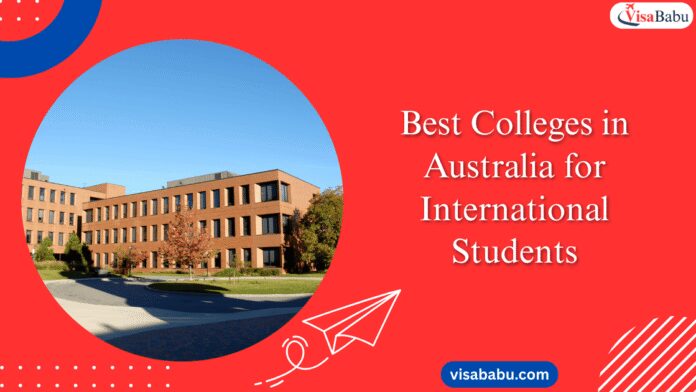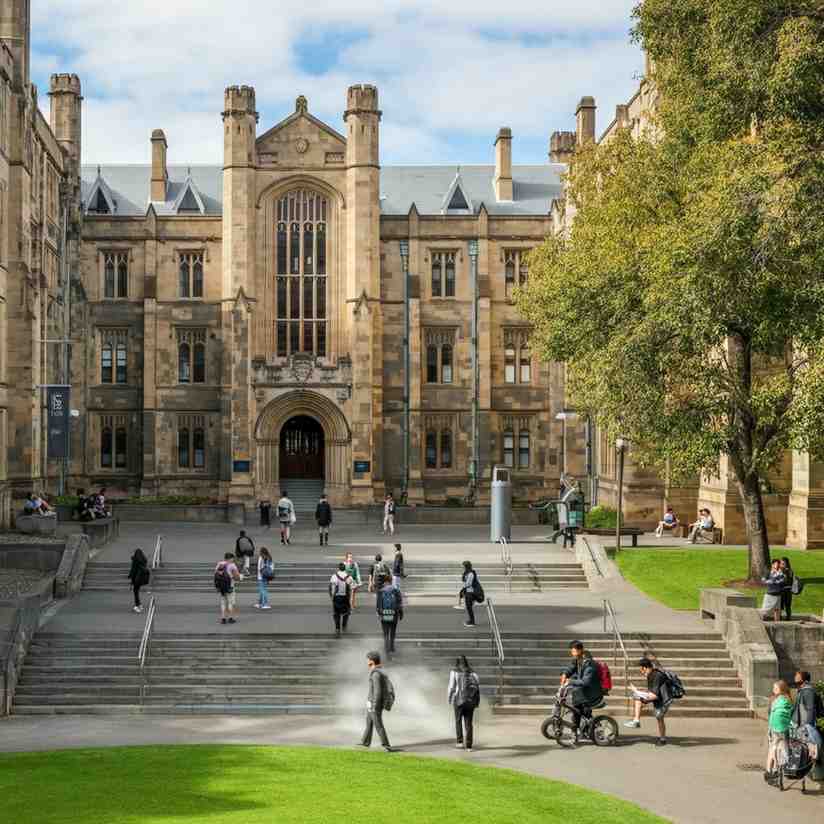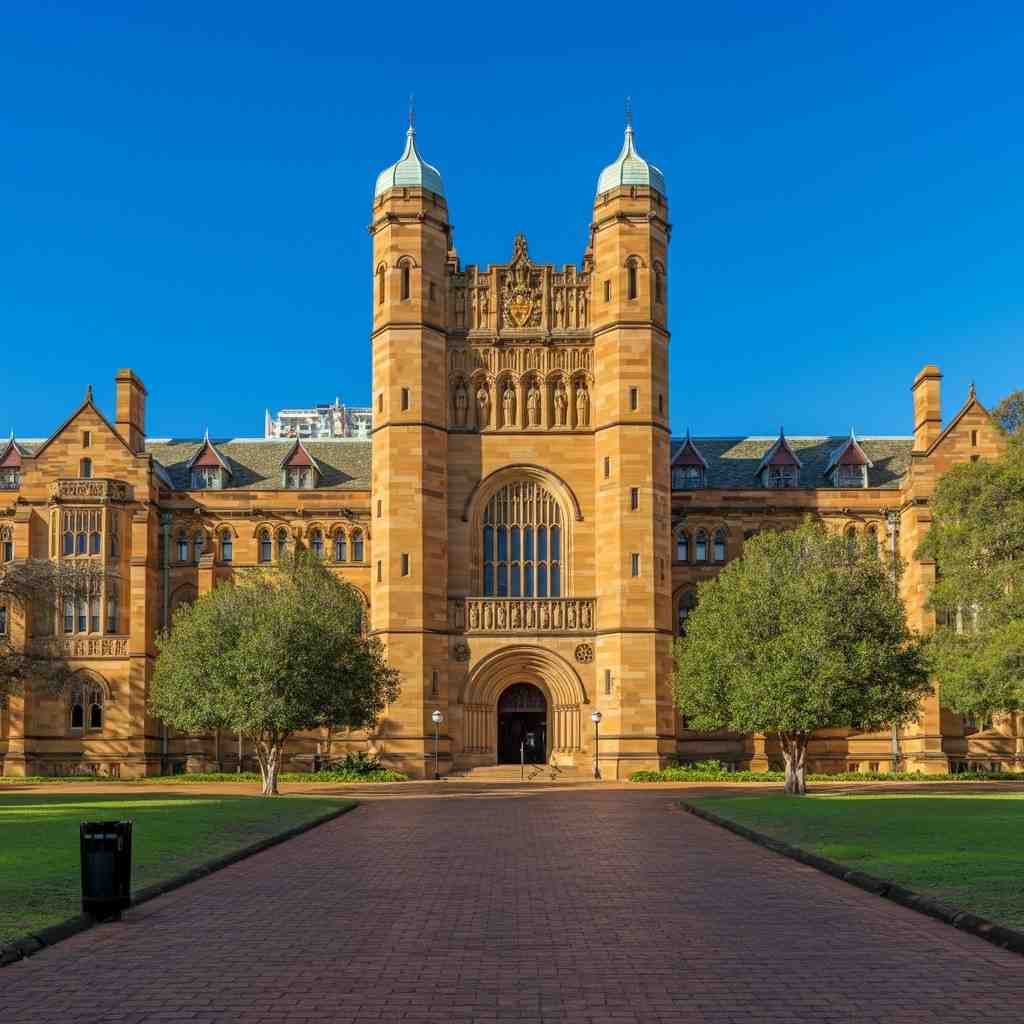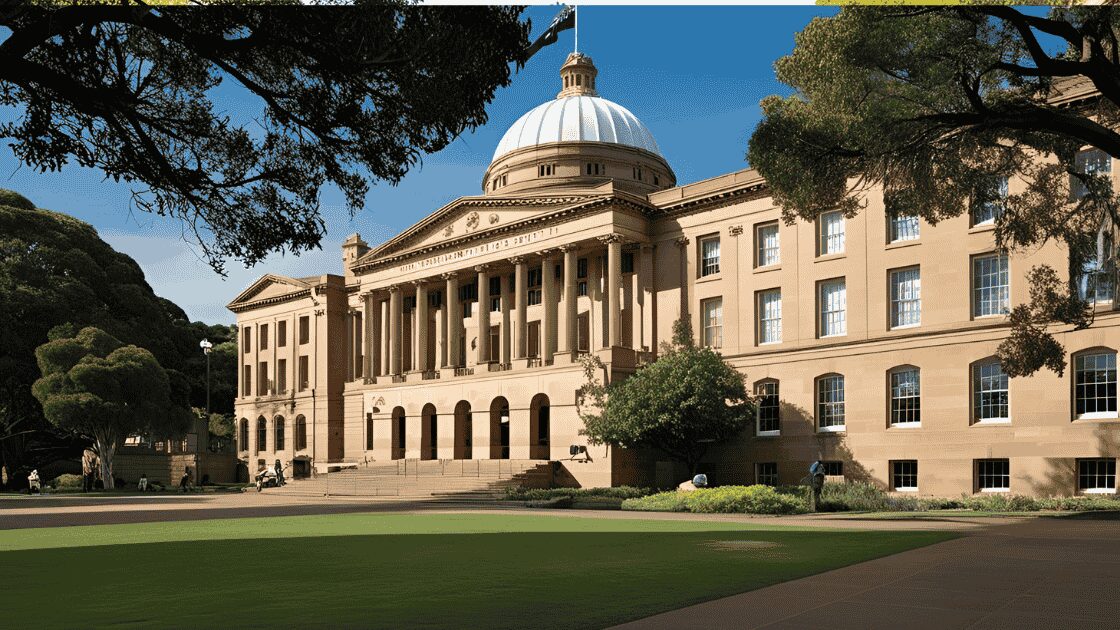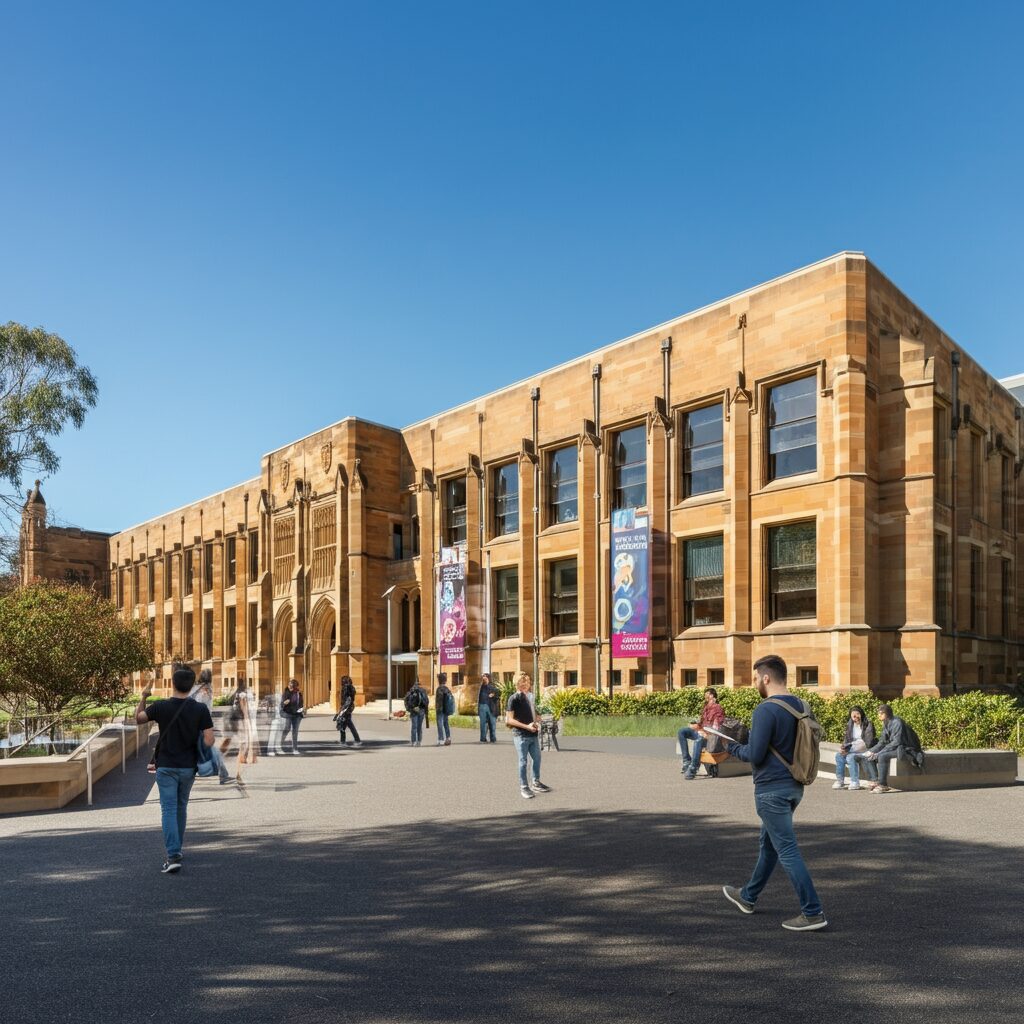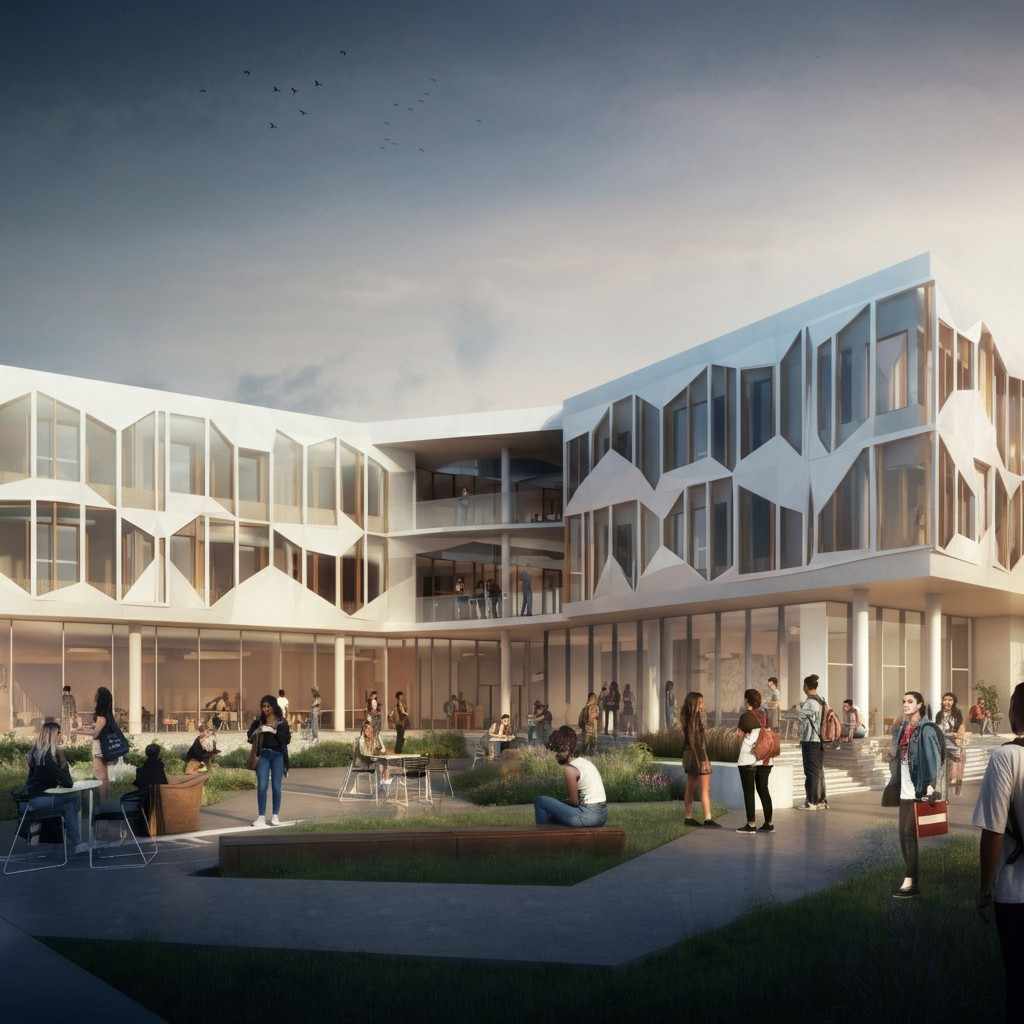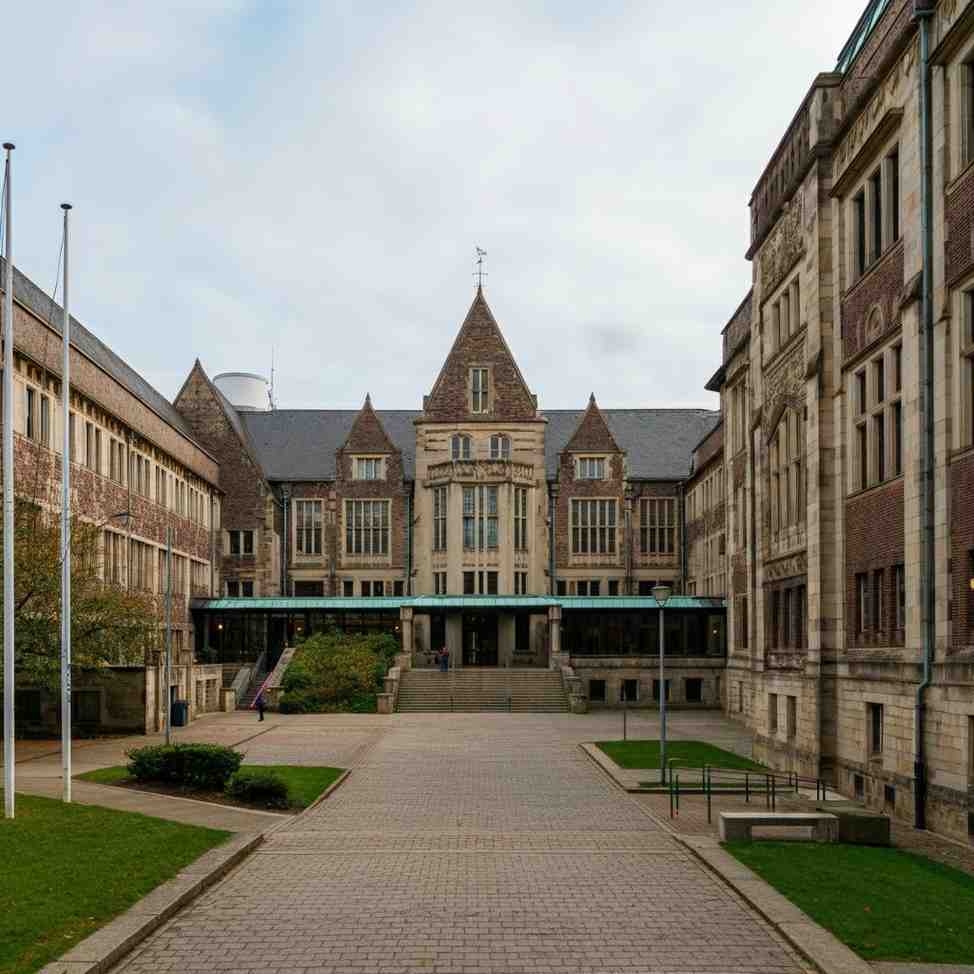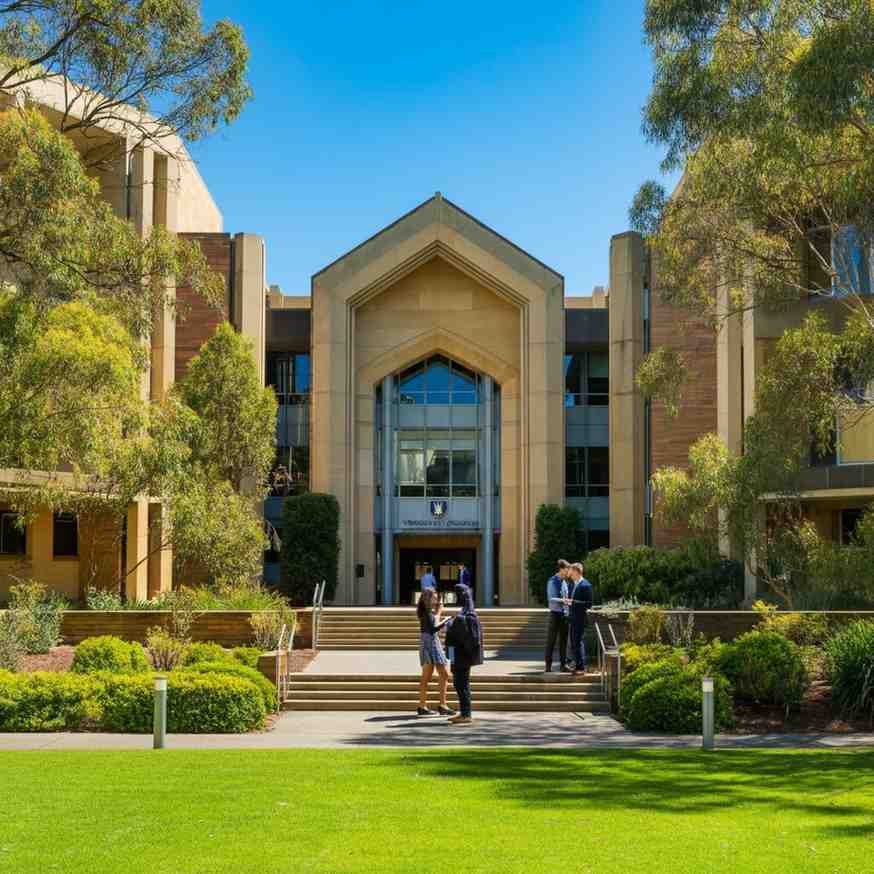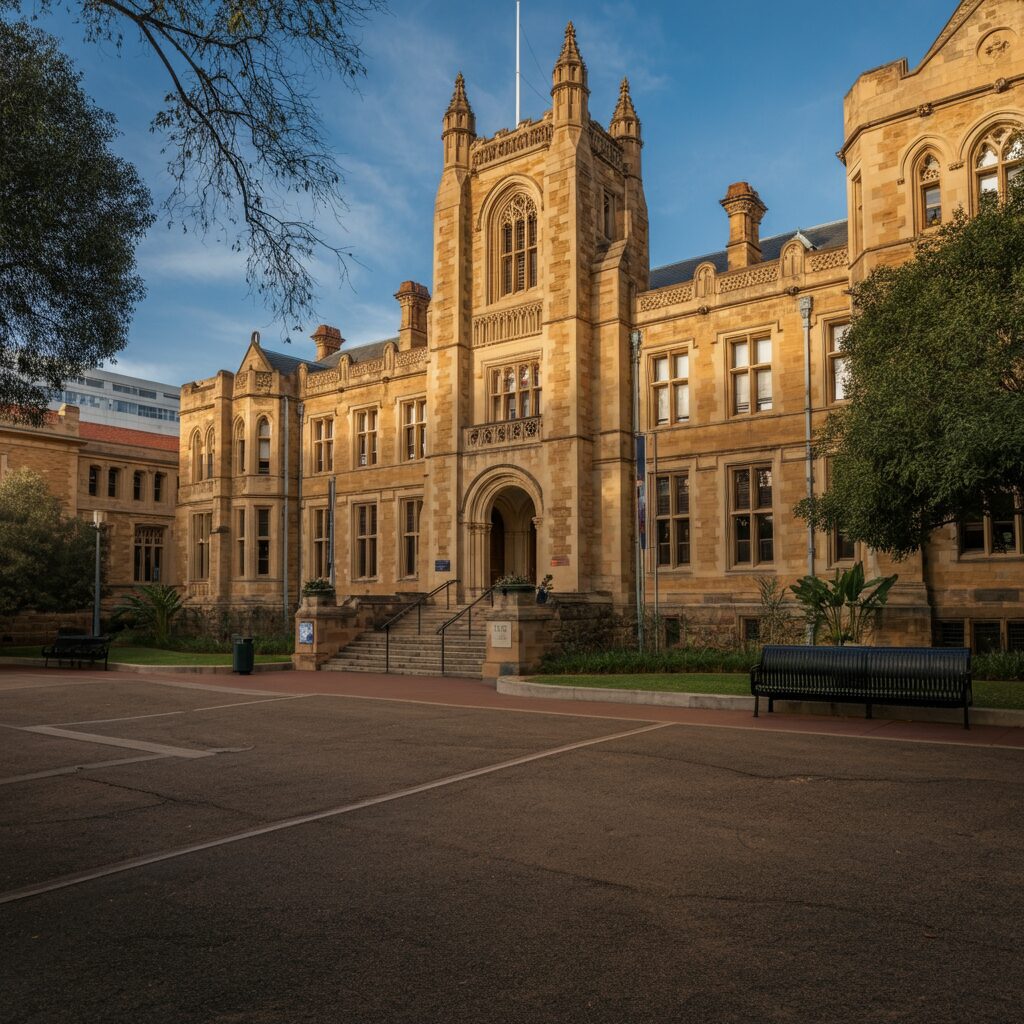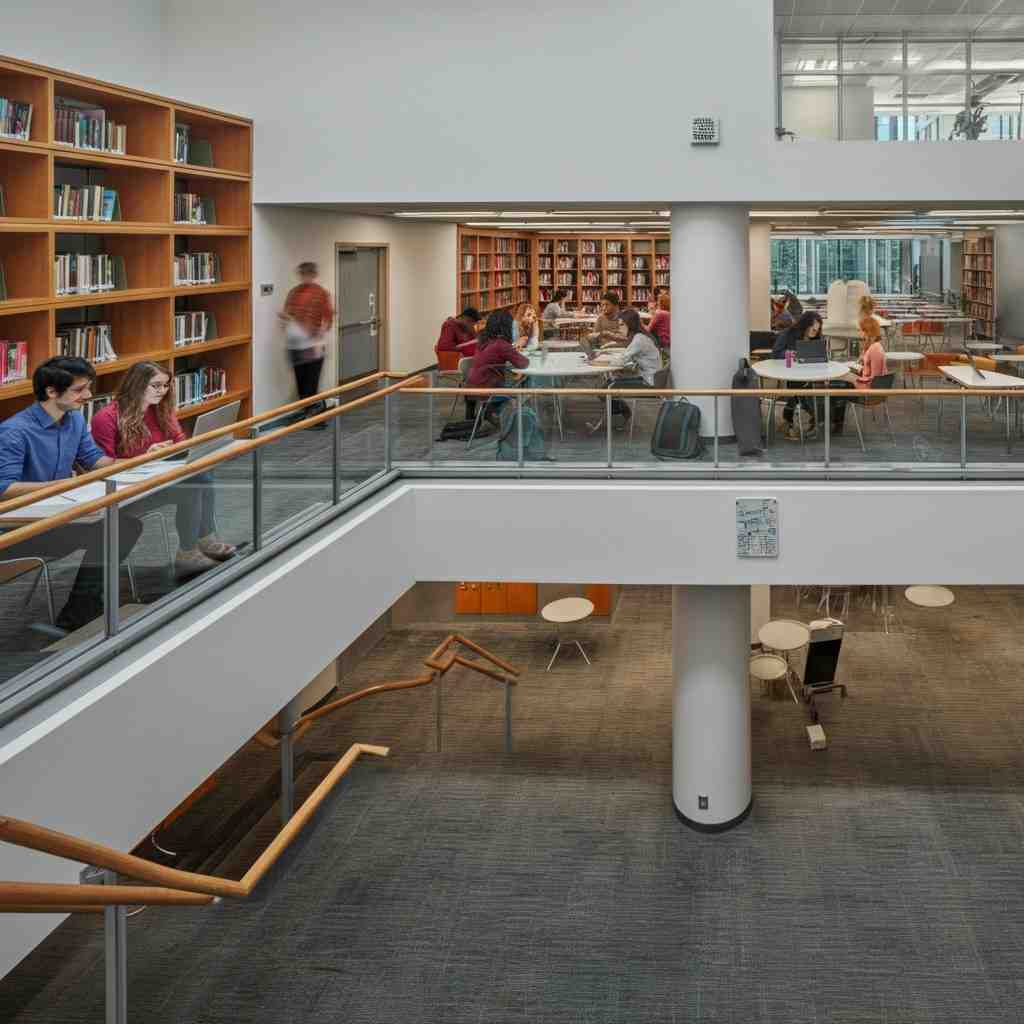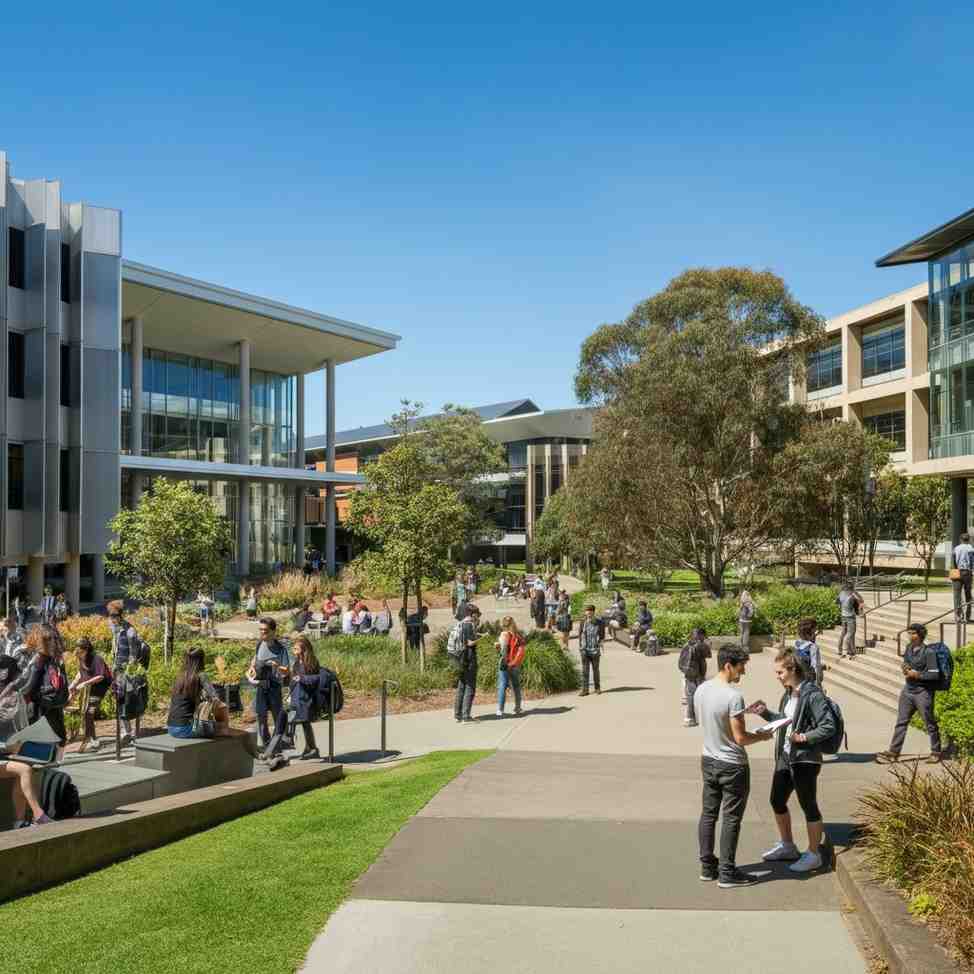Australia has world-class universities, lenient post-study work rights, and bustling cities with a contemporary multicultural vibe, which makes it not just the country for study but for a global career. By 2025, more than 960,000 international students will be undertaking studies in Australian institutions, and the numbers are increasing annually. Australia is well-established as a top education destination with 9 universities in the QS World Top 100, therefore becoming a world education hub.
If you are thinking about studying abroad, if you are weighing up your options, then Australia provides an amazing combination of quality education, multiculturalism, and post-graduation prospects which are hard to find in many other countries. This comprehensive guide explores the best colleges in Australia for international students looking to pursue their education in this dynamic country.
Top 10 Best Colleges in Australia List for International Students in 2025
Here is the list of all colleges mentioned in the text ranked in order:
1. University of Melbourne (#1 in Australia, #39 in the world)
2. Monash University (#2 in Australia, #58 in the world)
3. University of Sydney (#3 in Australia, #61 in the world)
4. Australian National University (ANU) (#4 in Australia, #73 in the world)
5. University of Queensland (UQ) (#5 in Australia, #77 in the world)
6. University of New South Wales (UNSW Sydney) (#6 in Australia, #83 in the world)
7. University of Adelaide (#7 in Australia, #128 in the world)
8. University of Western Australia (UWA) (#8 in Australia, #149 in the world)
9. University of Technology Sydney (UTS) (#9 in Australia, #154 in the world)
10. Macquarie University (#10 in Australia, #178 in the world)
Why Choose Australia? Benefits for International Students
Australia is now one of the countries that many international students prefer to study in because of its outstanding universities, wide range of courses, and high standard of living. The Australian system of education is famous for its tough standards and contemporary methods of teaching, so students get a high-quality education that is highly valued in the whole world by employers.
The opportunities to work after graduation are one of the most appealing things about studying in Australia. International graduates are able to stay and work for a maximum of 4 years, depending on their qualification, which offers working experience that improves career possibilities. This policy has made Australia a very attractive destination for students who are not merely looking for education but a possible way of getting into global career opportunities.
The multicultural environment of the country is another great benefit. Australian cities are a melting pot of cultures, languages and traditions, so it takes less effort for international students to adapt and feel comfortable. Universities provide all-around support services tailor-made for international students that include orientation programs, academic support and mental health services.
The feeling of beauty and the favourable climate of Australia complement its attractiveness. From beautiful beaches to exciting cities to exciting nature, students can experience a harmonious lifestyle where they can study and have fun. The country is among the countries that give high ratings in the world quality of life indices and provides a secure environment for international students.
Top 10 Best Colleges in Australia for International Students (2025)
Australia has a number of world-class institutions that provide excellent education opportunities for foreign students. Here’s a detailed look at the top 10 best colleges in Australia for international students in 2025:
University of Melbourne
The University of Melbourne is the best in Australia and the 39th best in the world according to the Times Higher Education World University Rankings 2025 and is the top institution in the country. With excellent scores in research quality (89.1), industry connections (99.3), and international outlook (92.3), it provides an outright world-class education experience.
The university is well known for its Melbourne Model curriculum, which allows students to have depth in their field of interest and breadth in other fields of study. This approach leads to well-rounded graduates that most employers in the world are after. The university has a wide range of support services for international students, such as advisors, language support programs, and cultural integration activities.
Some of the popular programs offered to international students include Medicine, Law, Engineering, and Business, which are always featured among the best in the world. The prime location of the university in Melbourne, which is voted the most livable city in the world several times, ensures that students will study and discover Australian culture in the most favourable environment.
University of Sydney
The University of Sydney is the #3 in Australia and #61 in the world, which makes it one of the most prestigious universities in the country. Known for stellar scores in research quality (92.1) and industry connections (99.5), it provides students with progressive research opportunities and close relations with industry partners.
Famous for its stunning campus, which combines historic sandstone buildings with contemporary facilities, the University of Sydney creates an atmosphere for studying. The university is mostly known for its training in Management, Architecture, Veterinary Science and Medicine, whereas students come from more than 130 countries.
International students enjoy extensive service provision, ranging from international students’ advisors, among other support services such as career counselling and accommodation, ranging from hostel accommodation, shared accommodation and independent living. The location of the university in Sydney – Australia’s largest city – provides students with access to many cultural attraction points, beaches, and job opportunities.
Australian National University (ANU)
Australian National University is ranked 4 in Australia and 73rd in the world for its outstanding research and academic achievements. ANU is situated in the capital city of Canberra, in Australia, and provides a unique learning environment where students can study with national institutions and government bodies relatively close by. The university also offers a wide range of support services, including career counselling and accommodation options such as on-campus dormitories, shared apartments, and off-campus independent living.
ANU is known for its strong focus on research and innovation, with over 5,500 staff members actively working on cutting-edge projects in various fields. This provides students with the opportunity to learn from experts in their respective fields and get hands-on experience through internships and research opportunities.
Moreover, ANU has a diverse student body with over 22,000 students coming from more than 100 countries. This creates a culturally rich environment where students can interact with people from different backgrounds and expand their global perspective.
The university also offers various extracurricular activities and clubs for students
The areas of Politics, International Relations, Physics and Earth Sciences are the ones, which ANU excels. The university also has a low student-to-faculty ratio, a factor that guarantees individual attention and mentorship to students. Its research-heavy nature will give students opportunities to participate in cutting-edge work with the best academics.
ANU provides special support services for international students, such as orientation programs, academic skills workshops, and career development resources. The residential colleges of the university help to create a supportive environment for the international students, thus facilitating their adaptation to life in Australia.
University of New South Wales (UNSW Sydney)
UNSW Sydney is the 6th best university in Australia and 83rd in the world, which is known for its innovation-oriented approach to education and research. A university offering its students excellent grades in research quality (91.7) and industry connections (98.2), UNSW offers the best of both worlds to its students – excellence in academics and practical skills desired by potential employers.
The university is especially known for the programs in Engineering, Business, Law and Medicine. The very strong emphasis on innovation and entrepreneurship at UNSW has made it possible to create a wide range of startups and industry partnerships for the students to network and intern with.
International students at UNSW enjoy extensive support services such as advisors who would serve them specifically, career development programs, and a variety of accommodation options. The fact that the university is located in Sydney gives students access to beautiful beaches, culture, and an active city life.
Monash University
Monash University is ranked #2 in Australia and #58 in the world, having an international orientation and a wide variety of programs. Monash is a university with outstanding scores in the quality of research (95), industry connections (99.7), and it gives students a world-relevant education.
The university is best known in such fields as Pharmacy, Engineering, Business, and Medicine. Monash’s international vision is traceable in its many international campuses and partnerships, providing students with opportunities for global mobility and exchange programs.
For international students, Monash has a large support network, with advisers and language support, as well as career development resources. The main campus of the university in Melbourne has modern facilities and a thriving student life, the location means it is close to both urban appeal and natural splendour.
University of Queensland (UQ)
#5 in Australia and #77 in the world, the University of Queensland is known for its research excellence, diversity of programs. UQ has high scores in research quality (87.8) and industry connections (99.7), which provide students with a world-class education with a significant practical dimension.
UQ is specifically famous for the Life Sciences programs, Environmental Studies, Business, and Engineering programs. The research centres and institutes of the university are leaders of innovation in such fields as sustainable development, health and technology.
The international students at UQ receive special support services, such as orientation programs, academic assistance, and career counselling. The university’s principal campus in Brisbane has state-of-the-art facilities and a lovely subtropical locality, which is ideal for working and recreation.
University of Western Australia (UWA
The University of Western Australia is the 8th best in Australia, and the 149th best in the world, with a very good study environment in a scenic campus. UWA has high scores in the area of research quality (87.6) and industry connections (98.3), which means that students get a combination of academic excellence and practical skills at the University.
UWA has 290+ courses in different disciplines with a strength in Agriculture, Ocean Sciences, Business and Humanities. The areas of global significance that include energy, health, and environmental sustainability are of interest to the research centres of the university.
UWA offers a wide range of assistance services to international students, such as specialised advisors, help with accommodation, and career development tools. By being situated in Perth, the university enables the students to enjoy a laid-back lifestyle and beautiful beaches while at the same time living in an area of a growing economy that provides employment.
University of Adelaide
The University of Adelaide is in 7th place in Australia and the position of 128th in the world, famous for its research output and close relations with industry. According to an exceptional score in research quality (92.3), the university provides students with opportunities to interact with the frontier research and innovation.
The university is especially distinguished in such areas as Wine Science, Agriculture, Health Sciences, and Engineering. Its strong relationships with industry partners offer internship and employment opportunities to the students.
The international student enrollees at the University of Adelaide are also served with a wide range of support services, which include orientation programs, academic assistance, and career counselling. The fact that the university is situated in Adelaide, which is known for its festivals, food and wine culture, provides students with a high quality of life at a lower cost than in bigger Australian cities.
University of Technology Sydney (UTS)
The University of Technology Sydney is ranked #9 in Australia and #154 in the world for its innovative approach to education and good industry engagement. UTS gets an excellent score in the field of research quality (94.9) and provides students with practice-based education, which helps them adapt to the real world.
UTS has a number of outstanding programs in Design, Nursing, Information Technology, and Business. The modern campus located in the centre of Sydney allows the students to use the modern facilities and be closer to the industry partners.
UTS provides special support services for international students, such as orientation programs, language support, and career development services. The fact that the university is based in Sydney’s innovation precinct is an opportunity for the students to network and secure employment.
Macquarie University
Macquarie University occupies the #10 position in Australia, as well as the #178 position in the world, being famous for its innovative concept of education and good industrial relations. Having high research quality scores (89.4) and industry connections (93.4), Macquarie provides students with a practical education and great career prospects.
The areas that the university excels in include Business, Health Sciences and Environmental Studies. Macquarie’s PACE (Professional and Community Engagement) program incorporates real-world experience into all degrees, meaning that graduates are job-ready.
The international students in Macquarie enjoy a full range of support services ranging including having advisors, language support, and career development services. The campus of the university is park-like and located in Sydney’s district of Innovation, thus providing modern facilities and progressive learning surroundings.
Latest Admission Requirements for International Students in 2025
It is important for international students who wish to study in Australian colleges to understand the requirements for admission. Although certain prerequisites are different in different institutions and programs, general requirements are followed by the majority of universities.
The first requirement for admission is academic qualifications. International students have to have finished secondary education that is equivalent to Australian Year 12 for a postgraduate program, or have undergraduate degrees for such programs. Normally, universities have country-specific guides for students to guide them in their qualifications comparison with Australian standards.
English proficiency is compulsory for all international students. IELTS, TOEFL, and PTE Academic scores are accepted in most universities. The minimum requirements differ from institution to institution and for the programs, but in general, an IELTS score of 6.5 overall, including no band lower than 6,0, is required for undergraduate programs, whereas postgraduate programs may need a higher score (7.0 or above).
Below is a general checklist of requirements for the application:
- Completed application form (usually online)
- Academic transcripts and certificates
- English language test results
- Purpose statement or personal statement
- Letters of recommendation (mostly for postgraduate programs)
- Portfolio (for creative arts programs)
- Resume/CV (postgraduate and some undergraduate programs)
- Application fee
Some programs have additional prerequisites. For instance, Medicine and Dentistry may at times require particular subjects in science and entrance exams. Engineering courses usually expect students to have a sound knowledge of mathematics and physics. Business programs could require a math or an economics prerequisite.
It is recommended to apply 7-8 months prior to your desired beginning date so that there is enough time to complete the application procedure and make visa and moving arrangements. The major intake periods in Australian universities are two: February (Semester 1) and July (Semester 2); some of them also have smaller intakes in November or May for specific programs.
Scholarships and Financial Aid for International Students in 2025
The cost of education in foreign countries is one of the major concerns of international students. Luckily, Australian universities provide different scholarships and financial education opportunities to make education more affordable.
Merit-based scholarships are the most common ones that can be applied for by international students. These are given depending on academic performance, leadership qualities or other attainments. Australia awards, supported by the Australian government, are opportunities for students from developing countries in the form of full-time undergraduate or postgraduate studies.
Individual institutions offer university-specific scholarships in order to attract talented international students. For instance, the University of Melbourne has Melbourne International Undergraduate Scholarships that offer either 100%, 50%, or 25% remission of fees for the period of an undergraduate degree. Monash University has the Monash International Merit Scholarship, which covers 100% or 50% of the tuition fees for the best of the crop students.
The research scholarships are open for students who are studying higher degrees by research (Master’s by research or PhD). The Research Training Program (RTP) is a government scholarship that provides for the cost of tuition and may provide a stipend for living expenses and relocation allowance.
Discipline-based scholarships are meant for students in specific disciplines. For example, there are many more opportunities for scholarships available in the STEM (Science, Technology, Engineering, and Mathematics) areas because Australia is interested in developing these fields.
In order to maximise the chances of winning financial aid:
- Be one of the early applicants since most of the scholarships have limited positions.
- There are no strong application points, but academic achievements and extracurricular activities have been stressed.
- Search for home country scholarships that could be offered to students from your country.
- Consider partial scholarship or tuition fee discounts, which are easier to get compared to full scholarships
- Look for funding outside of the universities to private organisations, foundations and your home government.
It is worth mentioning that international students in Australia are allowed to work part-time (up to 48 hours per fortnight) during the academic session and full-time during official breaks as another way of covering their living expenses.
International Student Popular Courses and Programs in 2025
There are a variety of courses available in Australian universities which attract foreign students from other parts of the world. Knowing the most popular and in-demand programs can assist in making wise decisions regarding your educational journey.
Business and Management programs are always among the most popular ones among international students. Australian business schools are known around the world, with many of them holding top accreditations from AACSB, EQUIS and AMBA. It is of no wonder then that the MBA courses at such institutions as Melbourne Business School, UNSW Business School, and Monash Business School are extremely popular because of their strong industry connections and global rankings.
Many international students prefer such courses as Engineering and Technology in Australia since Australia has a vibrant innovation ecosystem. Civil, Mechanical, Electrical and Software Engineering courses in institutions such as UNSW Sydney, University of Melbourne and University of Queensland are provided with state-of-the-art facilities and research opportunities. The high focus on the development of practical skills and industry projects makes the graduates very employable.
Australian Health Sciences and Medicine programs are known for the quality and output of their research. International students prefer Nursing, Public Health and Allied Health programs. Although medical degrees are highly competitive, there are programmes for graduate entry in universities such as the University of Sydney, the University of Melbourne and Monash University.
Following the global digital transformation, IT and CS programs have been in more demand. Specialisations in Artificial Intelligence, Cybersecurity and Data Science are highly in demand. University of Technology Sydney, RMIT, and Monash University are just some of the institutions that provide the industry-relevant curriculum, which prepares students for the fast-changing tech world.
Australia’s dynamic creative industries are of benefit to the Creative Arts and Design programs. Architecture, Visual Communication, Fashion Design, and Film Production are the most popular choices. Institutions that have strong creative programs and connections to the industry include RMIT, University of Technology, Sydney and Queensland University of Technology.
Environmental Sciences have become popular with the increasing concern about global environmental challenges. Australia has distinctive ecosystems that make it the best place to research in Conservation Biology, Marine Science, and Sustainable Development. Specialised programs in these areas are offered by such universities as James Cook University, University of Queensland, and University of Western Australia.
While selecting a program, you can consider some factors, including:
- Accreditation and recognition in your own country
- Industry partnerships and internship opportunities
- Research strengths and facilities
- Graduate employment outcomes
- Possibilities of specialising in your particular area of interest
Various combined or double degrees are also offered by Australian universities, which enables the students to acquire qualifications in two related fields, and thus improve their career options and adaptability in the labour market.
Best Student Cities in Australia in 2025
The selection of the city of your study city will have a great effect on your studying experience in Australia. There is a different feel and student experience in each major city.
Melbourne is consistently named as one of the world’s top student cities. Home to such prestigious institutions as the University of Melbourne and Monash University, it provides an ideal combination of academic performance and quality of life. Famous for its cultural diversity and a thriving arts community as well as excellent public transport, Melbourne offers an excellent setting for international students. The café culture and many parks in the city, as well as sporting activities, guarantee that there is always something happening outside study time. Although costs of living are relatively high (average monthly expenditure excluding rent: The money invested when it comes to quality of life is worth $ (AUD 1,200-1,500), it is justified.
Sydney, the biggest city in Australia, is characterised by a beautiful harbour and such landmarks as the Opera House and Harbour Bridge. It abounds with the University of Sydney, UNSW Sydney, and UTS, where the academic opportunities are great in all disciplines. The business district of the city provides networking and internship opportunities with big corporations. The beaches in Sydney, including the famous Bondi Beach, are ideal places for relaxation for the students. The most expensive place to live is in Australia (average price per month for a shared flat). But there are a lot of part-time work opportunities (AUD 1,000-1,500), but few full-time work opportunities
Brisbane offers an alternative that is cheaper without settling for quality education. Both the University of Queensland and Queensland University of Technology are considered to be among the best institutions of higher learning. The city’s subtropical weather, open-air living and the friendly atmosphere make it especially appealing for international students. The growing economy of Brisbane presents excellent employment opportunities; its proximity to both the Gold Coast and Sunshine Coast gives escape options for the weekend. The cost of living is roughly 20% lower than in Sydney or Melbourne.
Perth, located on the west coast of Australia, has a laid-back way of life and gorgeous beaches. The University of Western Australia and Curtin University create great opportunities for education. The geographical isolation of the city from Australia’s eastern states gives it a character and ties with the Asian markets. The mining and resources sector of Perth provides employment opportunities in the field of engineering and so on. The city has a lower cost of living as compared to Sydney and Melbourne, with great public areas and outdoor activities.
Canberra- the capital of Australia offers a study environment near national institutions and government institutions. Here lies the Australian National University, always Australia’s best-ranking university. The city is built and organised, clean, and easy to navigate, and it has good public facilities and green spaces. Even though smaller than other major cities, Canberra has a high standard of living and good employment opportunities, especially in the government and research industries. It is not as expensive as Sydney or Melbourne, and the student community is close-knit.
Adelaide has become a choice destination for international students who are looking for quality education at a lower price. The University of Adelaide and Flinders University have great programs in different fields. The city has a reputation for festivals, food and wine culture, and Mediterranean climate. Its compact nature makes it easy to move around, and its affordability (about 25% cheaper than Sydney) makes it affordable to international students.
When selecting a city, some of the considerations should be:
- Proximity to your chosen university
- Living and accommodation costs.
- Climate preferences
- Industry connections that are applicable to your area of discipline.
- Cultural and recreational activities
- Transportation infrastructure
- International student body size.
Post-Study Work Opportunities and Visas
One of the most attractive aspects of studying in Australia for international students is that the country has very generous post-study work rights, which allow graduates to receive sufficient work experience after their studies.
The Temporary Graduate visa (subclass 485), Post-Study Work stream is the key immigration route for international graduates who want to work in Australia. This visa has a duration depending on the level of qualification received:
- Bachelor’s degree graduates: 2 years
- Master’s by coursework graduates: 3 years
- Master’s by research graduates: 4 years
- PhD graduates: 4 years
Further, graduates who study in regional areas of Australia have an opportunity to receive an additional 1-2 years on their post-study work visa (PSWV), as part of the Australian government’s initiative aiming at regional development promotion.
To be eligible to obtain the Post-Study Work visa, the students must:
- Completed a course registered by CRICOS (Commonwealth Register of Institutions and Courses for Overseas Students)
- Have undergone two or more academic years (92 weeks) of studies in Australia.
- Took their studies not more than six months ago
- Pass English language requirements (normally IELTS, with the overall score of 6.0)
- Meet health and character requirements
- Have adequate health insurance
In the course of the post-study work period, graduates have no limitations regarding the occupation as they can engage in any job that interests them. Such flexibility enables them to venture into various careers and acquire varied working experience.
For those who are looking for a longer-stay or permanent residency, the post-study work is a window to:
- Obtain Australian work experience that is great for several skilled migration visas.
- Look for an employer that may sponsor a work visa.
- Be eligible for skilled migration points (Australian working experience counts as points for skilled migration applications).
- Develop professional networks in Australia
The most frequent way to permanent residency after post-study work is obtaining permanent residency through the General Skilled Migration program, especially through the Skilled Independent visa (subclass 189) or the Skilled Nominated visa (subclass 190). These visas call for applicants to possess skills in occupations in Australia’s Skill Occupation List and a pass in a points-based assessment.
It should be noted that immigration policies may be changed; that is why international students should monitor the Department of Home Affairs website or consult registered migration agents for updated information.
How to select the best College in Australia for Internal Students in 2025
Selecting the right institution from among the best colleges in Australia for international students requires careful consideration of various factors. The following tips will be useful for your decision-making process:
Match your academic aspirations with your institution’s strengths by researching each institution’s reputation in your field of study. Although the overall rankings are helpful, the department-specific rankings are often more helpful. For instance, if your interest is Marine Biology, James Cook University may be better than a highly-ranked university that does not have excellent marine science programs.
Think about the locational and lifestyle factors that will affect your everyday life. Australia cities present very disparate lifestyles, ranging from the cosmopolitan buzz of Melbourne and Sydney to a more sedate tone of Brisbane and Adelaide. Sit down and ask yourself whether you are more inclined to live in a campus incorporated into a city centre or a classical university campus. Climate choices should further be considered in your selection because Australia covers tropical, subtropical, and temperate climates.
Consider the cost of education and the cost of living carefully. There is also a huge difference between tuition fees for universities and programs, and the fees cost between $20,000 to $45,000 for international students. Costs of living also vary widely from one city to another, with Sydney and Melbourne being the most expensive cities. Search for universities that have a good value where they provide quality education at affordable costs.
Research scholarships that are aimed at international students from your country or region. Some universities have country-specific scholarships or collaborate with other international governments and organisations. Scholarship application deadlines are usually before normal admission deadlines, so be on it.
Study the support services for international students because these may have a huge bearing on your experience. By browsing the university lists, find those which have comprehensive orientation programs, academic support services, career counselling, and mental health resources. Larger support services are usually provided by universities that have many international students.
Think about internships and industry connections – they can make you more employable after college. Strong industry partnerships will result in better internship placements and networking opportunities for universities. See information about the career outcome of international graduates from your pending universities in terms of employment rates and average starting salaries.
Engage with current students or alumni through virtual events, university social media groups, and forums. Their firsthand experiences can be a source of important information that may not be included in the official university materials. Inquire about their experiences with professors, the content of courses, facilities on campus, and the international students’ community.
Make sure your selected program is accredited and recognised in your home country if you intend to come back after graduating. There are certain professions that state particular requirements for international qualifications to be accepted.
Application Process: Step-by-Step Guide in 2025
The application process of Australian colleges needs proper planning and keen attention to detail. This is an all-inclusive step-by-step guide to guide international students through the process:
Begin by doing some research on potential universities as well as programs at least one year to 15 months before the date when you want to begin. Use university websites, education fairs and online platforms to get details on admission requirements, application deadlines, as well as program details. Make a shortlist of 3-5 universities within your academic interests, budget, and location options.
Consult the actual entry requirements for various programs of your choice because these vary from one university and course to another. All universities publish country-specific entry requirements on their websites, which means that you can see how your qualifications measure against Australian standards. Make sure you have met the English language requirement, which is usually IELTS, TOEFL or PTE Academic scores and arrange to take the exams if it is a must.
Plan your application documents way before. These typically include:
- Academic transcripts and certificates (translated if not in English).
- English language test results
- Statement of purpose, personal statement.
- Letters of recommendation
- Resume/CV (for postgraduate applications)
- Portfolio (for creative arts programs)
- Copy of passport
Make your applications online through the university’s online system. Many Australian universities accept direct applications on their websites, but there are those that use centralised application systems in specific states. Make the application charge, which is usually between AUD 50 to AUD 100 per application.
After applying and once all the requirements have been met, you will be sent an acknowledgement and application number for tracking purposes. The processing time takes different periods of time in universities between 2 to 8 weeks. There are some universities that provide conditional offers as they await the final documents or English test results.
Once you get the offer letter, you should read the terms and conditions before you accept it. In order to take the offer, you usually have to:
- Sign the acceptance form and send it back.
- Make the first semester’s tuition fee, or a deposit.
- Make a payment of the Overseas Student Health Cover (OSHC), which is required for international students
Once you have accepted your offer and paid the required fees, the university will issue you a Confirmation of Enrollment (Coe), which is used for a student visa application.
Apply for your student visa (subclass 500) at the Department of Home Affairs website. You’ll need:
- Your CoE
- Demonstration of financial capability (to indicate that you are able to pay for tuition, living costs, and plane fare to and from South Africa.
- Health insurance details
- English proficiency results
- Character and health assessments
- Genuine Temporary Entrant (GTE) statement
After your visa has been approved, plan your trip and book your accommodation. Most universities provide airport pickup and temporary accommodation services to fresh international students. Attend the university orientation program, which is usually held 1-2 weeks before classes commence, in order to get familiar with facilities available on campus, mingle with other students and process enrolment procedures.
Australia’s Student Life and Support Services in 2025
Joining Asia on the other side of the world, the experience of life as an international student in Australia goes way beyond the classroom. Familiarising yourself with the available support services and what to expect in regards to campus life can ensure you get the best from your experience in Australian colleges.
Australian universities have great orientation programs targeted at international students. These programs usually entail campus tours, information sessions on academic expectations, workshops on Australian culture, and social activities, where you can get to know other students. Orientation is very important in the knowledge of university systems, the establishment of vital services such as banking and telecommunication, and understanding the support resources at their disposal.
There is a plethora of academic support services in Australian institutions. Most universities provide:
- Learning centres that conduct workshops on academic writing, research work and exam preparations
- Support in the English language for non-native speakers.
- Library orientation and research assistance
- Peer mentoring programs
- The academic advisors could assist with the choice of courses and the planning of studies.
Health and well-being services are given top priority in Australian campuses. Universities have medical facilities on the school premises that are attended by doctors, nurses, and counsellors. The mental health care is provided in large numbers with free or affordable counselling services offered to students who may feel stressed, homesick or have other problems. Physical wellbeing courses are also major areas of study in many institutions – fitness centres, sports facilities and recreational activities.
Accommodation is diverse depending on the choices and budgets, from basic to luxurious facilities.
- On-campus residences and colleges offer an environmental community with meals and activities included.
- University-managed apartments provide more independence while being close to the campus.
- Homestay arrangements provide students with an opportunity to live with Australian families and to experience the Australian culture directly.
- Private rentals offer full freedom, but they are less organised and are responsible.
Student clubs and societies are the backbone of social life on campuses. Australian universities have hundreds of student organisations that cover scholastic interests, cultural groups, sports, arts, and hobbies. The international student associations usually arrange events that promote various cultures and offer peer support networks. The best way of making friends and creating a sense of belonging is by being a part of these groups.
Career development services assist in preparing students for employment after graduation. These typically include:
- Resume and cover letter reviews
- Interview preparation
- Career fairs with potential employers
- Networking events
- Internship and job placement assistance
- Workshops on job search tactics and professionalism skills
Cultural support services are aware of the peculiarities of international students. Several universities have specialised international student advisors who are able to help with visa issues, help international students settle into a new culture and point them to the right resources. Cultural competency training for staff will ensure that respectful support is given in a culturally sensitive way.
Financial advice services assist the students in their budget control. Universities tend to hold budgeting courses, information about scholarships and financial aid, as well as emergency financial aid for students who have found themselves in a state of emergency.
Conclusion
Choosing to study at one of the best colleges in Australia for international students is a decision that can shape your academic journey and future career path. The Australian education system is a dynamic mix of academic brilliance, cultural richness, and post-graduation prospects, attractive not only for the country’s pupils but also for foreign pupils.
The best Australian universities are among the world’s best, with internationally recognised qualifications that are recognised all over the world. From the illustrious University of Melbourne and University of Sydney to such new wave institutions as UTS and Monash University, it provides for different strengths and specialisations catering to varied academic interests.
Beyond mere academics, Australia is a very accommodating environment for international students with a wide range of support services, an active campus community, and multicultural cities to explore. The excellent economy of the country and the generous post-study work rights are the channels for graduates to acquire some international work experience or perhaps even start a more permanent career in Australia.
Rankings are not the only aspects to consider when making your decision; consider program-specific strengths, where you would like to live, money, and future career plans. Do your research and get in touch with current students or alumni, and if it is possible, take on a virtual or in-person tour of campuses before you settle on anything.
Do remember that the “best” university would be the one that best addresses your individual needs, aspirations, and situation. With proper planning and details in this guide, you can easily make a decision regarding your education in Australia.
On the way to this exciting journey, make use of the resources that are offered by the international offices of universities, the education agents and online communities of international students. Your Australian education experience can be life-changing academically, professionally, and personally.
FAQs(Frequently Asked Questions)
Q1.Which of the Australian universities is best for undergraduate students?
Ans. For undergraduate studies, the University of Melbourne, the University of Sydney, and the Australian National University are always the best. It is a unique model of undergrad studies of the University of Melbourne – Melbourne Model – where students have broad first-year studies and then specialise. UNSW Sydney and Monash University are also great options, especially for fields of science, technology, engineering, maths, as well as business programs. Beyond the rankings, consider such factors as strengths of specific programs, campus culture, and location preferences when making your final choice.
Q2.Which are the most popular courses amongst international students in Australia?
Ans. Business and Management, Engineering, Information Technology, and Health Sciences are the most preferred areas among foreign students in Australia. Australian universities’ business degrees are globally recognised, with good industry connections and internship opportunities. Australia’s innovation ecosystem and its infrastructure development are of benefit to engineering programs. There are health-related courses, especially Nursing and Public Health, that provide access to the vibrant healthcare system in Australia. Design and Media Studies are other creative industries being embraced by the country as it develops its creative industries.
Q3.What are the acceptable English language tests for Australian universities?
Ans. Australian universities usually accept IELTS Academic, TOEFL ibt, PTE Academic, and Cambridge English Advanced (CAE) exams. The minimum IELTS cut-off points for most undergraduate programs are 6.0-6.5 (overall), with no band below 5.5-6.0. Postgraduate programs usually require better scores, usually 6.5-7.0 (all). There are some universities which provide conditional admissions to students who failed to meet minimum requirements, but they have English language pathway programs. Inquire with the selected institution for specific information on admission, as they differ from one university to the other and from one program to another.
Q4.How much does an international student pay to study in Australia?
Ans. The cost of tuition for international students varies between AUD 20,000 to AUD 45,000 a year, depending on the university and course. Medicine, Veterinary Science, and some specialised Master’s programs ask for the highest fees. Living costs are different from one region to another. Sydney and Melbourne are the most expensive cities (around AUD 23,000-25,000 a year for living expenses). Some of the cheaper alternatives include Adelaide, Perth and the regional centres. Most universities require international students to show availability of about AUD 21,000 annually for sustenance while applying for a student visa.
Q5.What are the ways in which international students can find part-time jobs in Australia?
Ans. International students on student visas are allowed to work for a maximum of 48 hours within a fortnight during the academic sessions and unlimited hours during scheduled breaks. University-based career services usually provide information on jobs on campus and also have job boards for jobs locally appropriate for students. Retail, hospitality, tutoring, and administrative positions are some of the popular part-time jobs. Participation in university events, student clubs and industry get-togethers can help in discovering opportunities that are not advertised. Seek, indeed, and Student Job Search are some of the job search platforms specifically tailored for part-time and casual vacancies for students.

